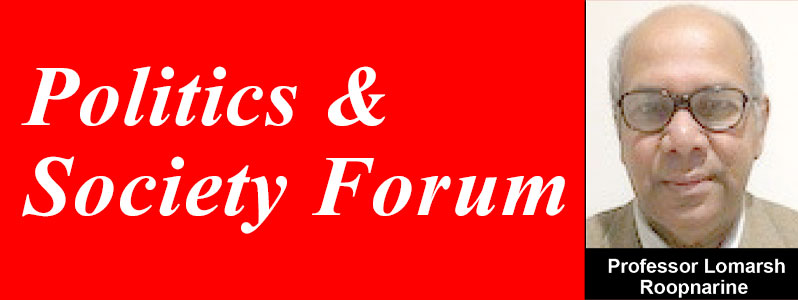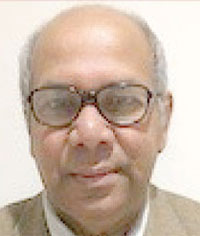THE recently concluded conference on an emerging apartheid state in Guyana by a group of ambitious African Guyanese deserves some analyses, despite how fragmentary or fractured, mainly because of its controversial labelling, intended perhaps to capture and captive a large audience. I joined the virtual conference via a feed that came to my Facebook from a source I have not seen before. Nonetheless, I listened to most of the presenters and even up to the concluding remarks, and so, therefore, I was not peeking through the window into this conference. I have seen and heard enough to write a column on it based on three themes: structure, content, and message.
The structure of the conference was not up to par primarily because of the word apartheid in the title, which directly or indirectly, excluded mostly Indian Guyanese. For this reason, some Africans declined to participate, and I suspect the conference organisers were unsuccessful in convincing some token Indians to present papers. The exclusionary nature of the title of the conference led to a poor attendance, roughly about 400 to 500 out of an African Guyanese population of 500,000 in and out of Guyana. This was a major disappointment to the organisers which was addressed in the letter columns of the dailies where some core supporters of the conference were calling for inclusivity, an afterthought. Moreover, none of the dailies covered the conference suggesting that the peddled apartheid thing was not newsworthy, a major blow to the intent and purpose of the conference.
The moderators too were not up to the task. They allowed anything to go in the chat section of the virtual conference. Loose languages were not addressed, not a word from the moderators. Only favourable questions were asked. For example, I asked this: “why is it that only when the PPP is in power that discussion like this surface.” I know I was on a different turf. However, the remarks I and others like myself received from the chatters are not worth repeating here, although some of these behaviours have been noticed at other conferences. I am reminded that people like me are unwelcome in these forums.
Further, the theme of the conference, an emerging apartheid state in Guyana, had no connection from one panel to the another, revealing a lack of synthesis. The insular discussions might have been more useful in a marketplace rather than in conference.
The content of the conference, as I understand it, was intended to show that Guyana is becoming an apartheid state that is deliberately sponsored and spooned by the mostly Indian-led PPP government. The presenters failed miserly to achieve the above and provided no convincing evidence of the practice of apartheid in South Africa and Guyana, mutatis mutandis. Glaringly, they did not seem to understand that Indians were also victims of the South African apartheid loving government. In the minds of the presenters Indians are the drivers of apartheid in Guyana because the Indian-led PPP Government was brought to power by Indians, regardless of their status, which has allowed the government to administer structural apartheid. So, in this reasoning, although poor and marginalised Indians are not directly involved in the emerging apartheid state in Guyana, they are supporters of it because they continue to vote for the PPP. This means then that poor Indian conditions cannot be equated with poor African conditions, a sordid stab to the solidarity and symbolism of the poor.
The content was also supported with misinformation, which is not unusual in presentations at conferences. One presenter stated that land was taken away from Africans at No. 45 and 47 Villages on the Corentyne. It is news to me that Africans had owned land at the above locations. Bhai Khemraj Ramjattan the stated village is your birthplace, and it is on you to call these fellas and provide them with the facts. Sometimes, Sir, I wonder what you tell people, as a leader, about your village.
I must admit that one presenter was leading onto something in Walter Rodney’s analytic style when he said, and I paraphrase, that one does not need data to know that Africans are a majority in the civil and security forces and Indians are a majority in the economic retail sector. But he did not develop this point, leading me to think that he and other presenters punctuated what I call the apartheid imaginary in Guyana. I will go further and say that after listening to the presenters I got the impression that they missed the title of the conference. Instead of showing how the emerging apartheid state is developing in Guyana, they desperately want to show that apartheid is already in Guyana, confusing and conflating the entire conference as well as sounding like a ventriloquist’s dummy.
The message of this conference was minimal, aligned more with the old book in a broken train feeding back to the rumor and propaganda mill rather than showing the emergence of apartheid in Guyana (lomarsh.roopnarine@jsums.edu).




.png)









